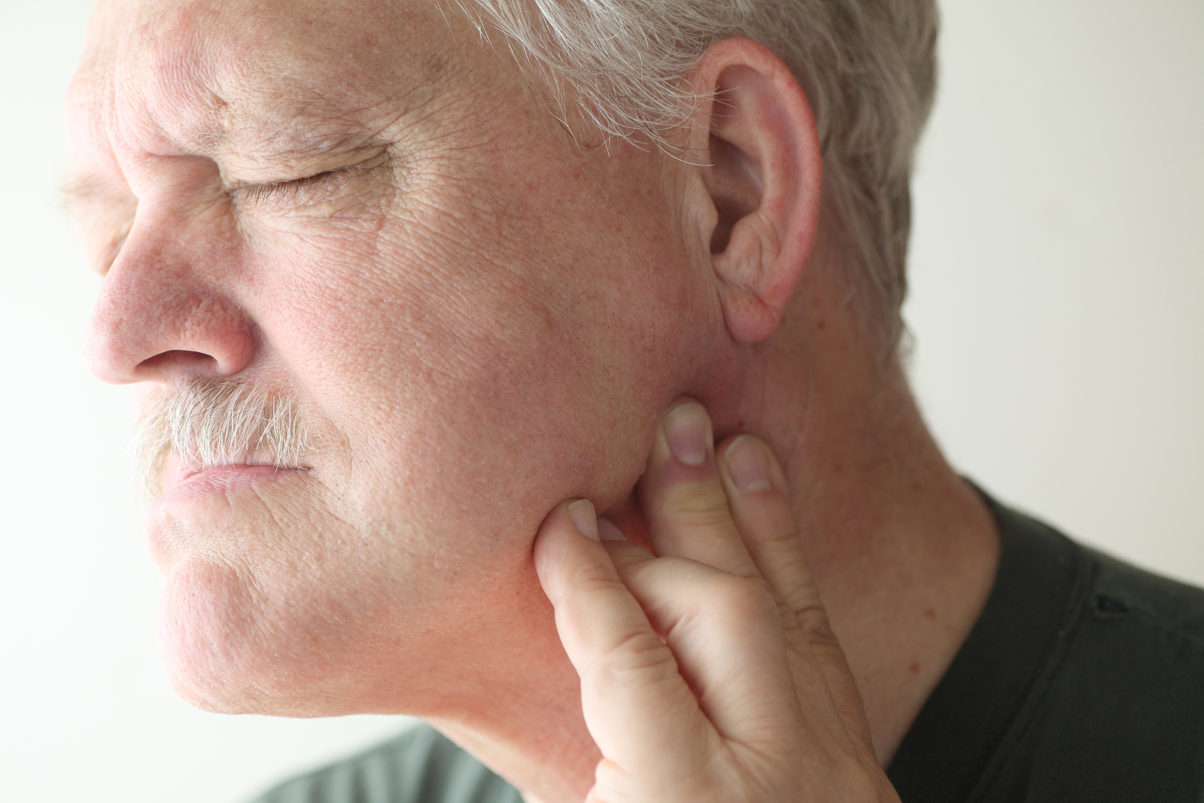Often called TMJ or TMD, temporomandibular joint disorder is a painful condition that affects countless people. In addition to discomfort, TMJ sometimes leads to debilitating symptoms that can seriously damage a person’s quality of life. If you suspect you may be suffering from this frustrating condition, the following information can help.
What Is Temporomandibular Joint Disorder?
In human beings, the temporomandibular joint acts similar to a sliding hinge, which connects the jawbone to the skull. In most instances, the temporomandibular joint works flawlessly without producing any noticeable sensations. Sometimes, however, people may begin experiencing pain in the jaw joint or within the muscle tissues that control jaw function. When these symptoms become chronic, temporomandibular joint disorder is a likely cause.
What Causes TMJ?
It’s not always easy to determine the cause of TMJ in every person. In many cases, pain may stem from a combination of factors, including injury, arthritis or genetics. Some people develop TMJ after years of grinding their teeth or habitually clenching while asleep or awake. Sometimes, TMJ gets better on its own. Other times, it can cause a number of troubling symptoms that can make it difficult for people to chew, sleep or talk.
What Are the Symptoms of TMJ?
Many people experience jaw soreness from time to time. With TMJ, however, people will usually notice one or more of these troublesome symptoms for weeks, months or years:
- Tenderness or pain in the jaw joint area, face, shoulders or neck
- Discomfort near the ear when speaking, chewing or yawning
- Popping or trouble opening the mouth wide
- Sticking or locking of the jaw in an open and/or closed position
- Grating, clicking or popping noises in the jaw joint when chewing or talking
- A feeling of fatigue in the face
- Difficulty chewing or the sensation that the lower and upper teeth do not fit well together
- Swelling on the side of the face
In severe instances, TMJ may also cause people to experience neck aches, toothaches, headaches, dizziness, hearing problems, earaches, upper shoulder pain and tinnitus.
What Are the Treatments for TMJ?
For some people, TMJ disorders get better with no treatment. For others, the symptoms can go on for years. Over-the-counter non-steroidal anti-inflammatory drugs are typically used to relieve TMJ discomfort. Sometimes, dentists also prescribe muscle relaxants and tricyclic antidepressants to help patients cope with symptoms.
Many times, people notice improved symptoms after wearing splints or mouth guards (occlusal appliances). Some people also choose to undergo physical therapy, which can include ultrasound, heat, ice and exercises designed to strengthen and stretch the jaw muscles. In some instances, patients may also benefit from counseling and education that helps them identify and alter certain risk factors and behaviors that can aggravate TMJ symptoms. These can include, grinding, clenching, biting fingernails and leaning on the chin. Some people also choose to try alternative treatments, such as acupuncture, relaxation techniques and biofeedback, which uses electronic devices to promote awareness of problematic actions, while also promoting effective relaxation techniques.
When symptoms do not respond to traditional treatments, patients may require corticosteroid or Botox injections, arthroscopic surgery, minimally invasive arthrocentesis, open-joint surgery or modified condylotomy. The need for these treatments depends on the specific symptoms and condition of the jaw joint. Ideally, it’s best to explore nonsurgical treatments before resorting to invasive TMJ surgery.
Preparing for Your Appointment
If you have been suffering from TMJ, your dentist will want to know a few things, including:
- How long you’ve been experiencing symptoms
- How much stress you’ve been under lately
- Whether you have frequent toothaches, neck aches or headaches
- Which supplements or medications you take
- Whether the pain is constant or worse at certain times
- Which activities trigger your symptoms
- Whether your jaw clicks or pops when you move it
- Whether you can open your mouth and chew normally
Depending on your symptoms, your dentist may suggest a conservative treatment plan to see if you experience improvement. If things do not get better in a reasonable amount of time, he or she may eventually refer you to a doctor who specializes in TMJ disorders.



 Previous Article
Previous Article